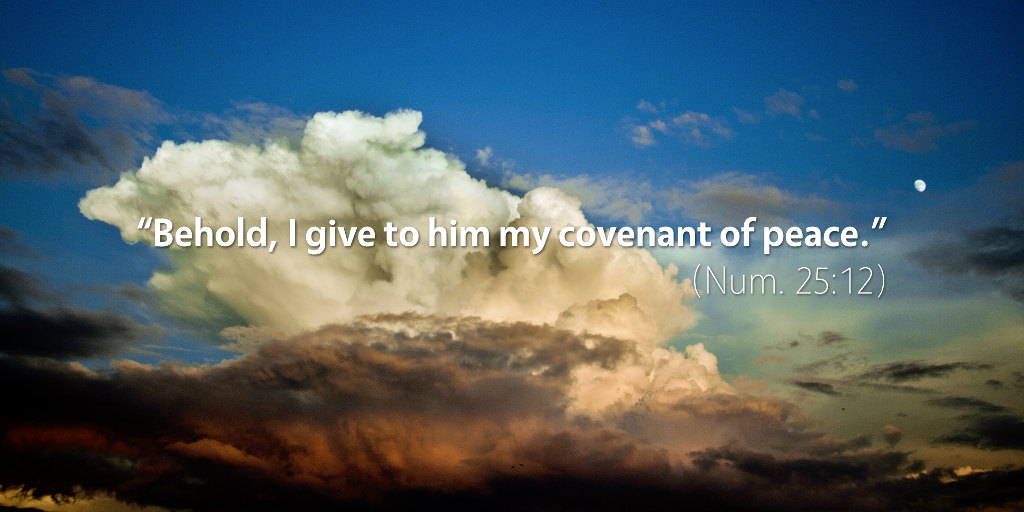Bible Readings for May 16th
Numbers 25 | Psalm 68 | Isaiah 15 | 1 Peter 3
As we discussed in our meditation for Numbers 22, the book of Numbers describes Israel’s descent. In the beginning of Numbers, we see the perfect system Israel received that made it possible for Yahweh to dwell in their midst, but then the rest of the book traces Israel’s fall all the way down to extremely dark places of rebellion. Here, in Numbers 25, things continue to get worse as Israel begins to worship the gods of the Moabites and the Midianites. Numbers 25:3 is the tragic statement of the passage: “So Israel yoked himself to Baal of Peor.” 1 This is the nightmare of the golden calf all over again, with Yahweh’s people worshiping false gods.
But just as Yahweh gave the order for Israel’s judges to go through the camp and slaughter any men who had begun to worship the Baal of Peor (Num. 25:5), an Israelite brought a Midianite woman into his tent. Phinehas, the grandson of Aaron, rose up, took a spear, and pierced the man and his whore (Num. 25:1) through their bellies, and Yahweh relented from his wrath against Israel (Num. 25:7–8). Yahweh was pleased that Phinehas had been jealous for Yahweh, and he blessed all Israel because of what Phinehas did.
It is fascinating, though, that when Jesus Christ came, he did not come to punish evil-doers and the worshipers of false gods. We do not find Jesus piercing sinners to wipe away the sins of Israel; instead, we see Jesus submitting to being pierced in order to take upon himself the wrath of God against our sin.
Ultimately, the work of Phinehas addressed one problem at one time in Israel’s history. When Jesus Christ gave up his life as a sacrifice on the cross, however, he offered himself up as a once-for-all sacrifice for the people of God.
Therefore, in Numbers 25, we can almost hear God hinting at the great work of his Son, saying that the Lord Jesus Christ “has turned back my wrath from the people of Israel, in that he was jealous with my jealousy among them, so that I did not consume the people of Israel in my jealousy. Therefore, say, ‘Behold, I give to him my covenant of peace, and it shall be to him and to his descendants after him the covenant of perpetual priesthood, because he was jealous for his God and made atonement for the people of Israel’” (Num. 25:11–13).
Today, do not be yoked with the false gods of this world (2 Cor. 6:14), but instead, remember the words of your kind Savior who was pierced for you: “Take my yoke upon you, and learn from me, for I am gentle and lowly in heart, and you will find rest for your souls. For my yoke is easy, and my burden is light” (Matt. 11:29–30).
1 This is not likely the same Baal whom the prophet Elijah confronts later in Israel’s history. The word Baal simply means “Lord,” and it was a general word used as a title for many gods—including Yahweh, at times (e.g., Hos. 2:16).
Podcast: Play in new window | Download (5.1MB) | Embed
Subscribe: Apple Podcasts | RSS | More

Scripture quotations are from The Holy Bible, English Standard Version copyright © 2001 by Crossway Bibles, a division of Good News Publishers. Used by permission. All rights reserved.


